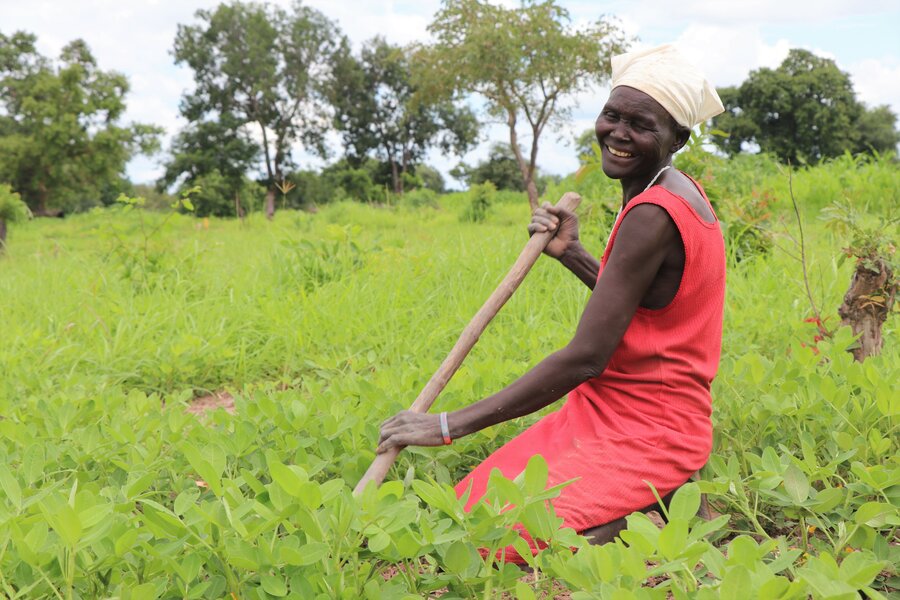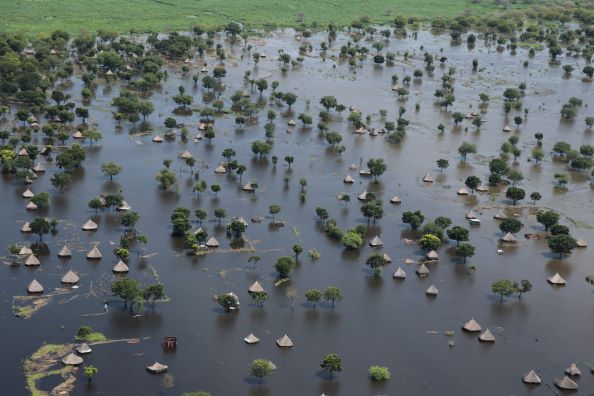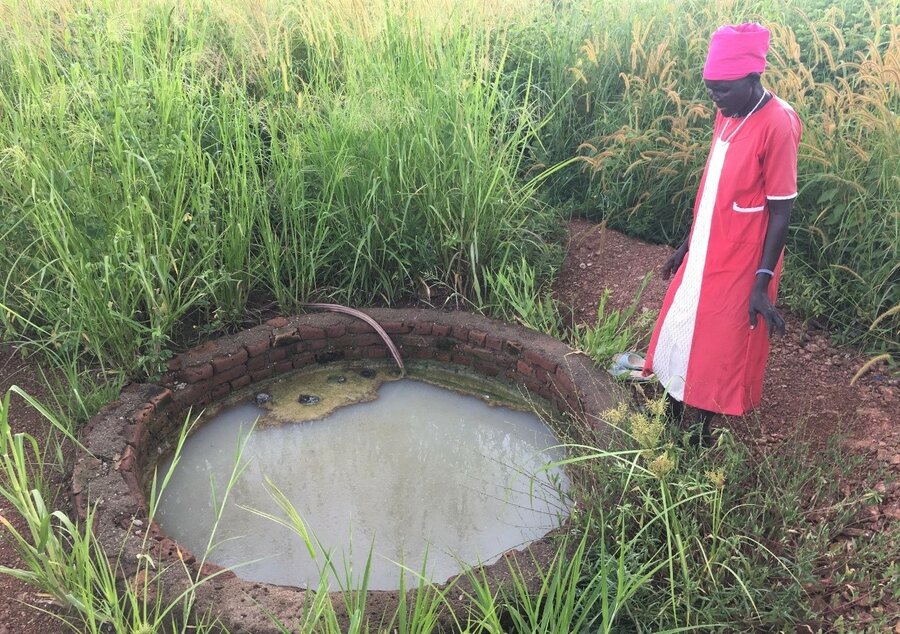In the Village of Ayok-Hong, South Sudanese Farmers Are Countering Climate Change – One Plot of Land at a Time

Ahead of World Soil Day, we’re visiting the village of Ayok-Hong in northwestern South Sudan to see how the United Nations World Food Programme (WFP) is providing farmers with “climate-smart training” to make the most of their land and yield stronger harvests.
Tucked away in the northwestern corner of South Sudan, the village of Ayok-Hong, in Northern Bahr el Gazal State, is hot throughout the year. Unpredictable rainfall over the past few years has put precious property, crops and livestock at risk.

As the climate crisis sweeps across the world, developing countries that contribute the least to global warming are bearing the brunt of its devastating impact. Record floods for three consecutive years have displaced thousands of people.
In partnership with Irish humanitarian agency Concern Worldwide, the U.N. World Food Programme is supporting 900 farming families in Ayok-Hong village to improve their food security and to build resilience against climate shocks such as floods and drought in agriculture.

Abuk uses the water from shallow wells to irrigate her crops in the dry season.
Farmers are trained in farming practices such as timely planting, crop spacing, mulching, mixed cropping, and irrigation techniques such as shallow wells.
“We train farmers on crop management techniques based on the type of soil and climate in their area,” says Manase Kollang, a Programme Manager at Concern Worldwide. “For example, some types of soil cannot hold moisture for long periods of time.
Farmers like 60-year-old Abuk are already benefitting from such ‘climate-smart training.’ Unable to access water in the dry season, Abuk could only harvest around five bags of sorghum, which was never enough to sustain herself and her seven grandchildren between harvests.
“I used to grow sorghum only,” says Abuk. “But yields were low due to poor farming methods and extreme weather conditions.”

“Now I can grow sorghum and groundnuts to sell and even some leafy greens, okra, tomatoes, and onions for my family to eat,” Abuk says.
Abuk and her community were introduced to dry season vegetable production – enabling farmers to access water from shallow wells even in the dry season. With access to water, seeds and technical training, Abuk now harvests 15 bags of sorghum and 17 bags of groundnuts, which gives her an income of $60 per month.
Farmers are the backbone of the world’s food supply and the U.N. World Food Programme works around the clock to provide them with the tools, training and support they need to thrive. To learn more about our programming with small-scale farmers, click here.
This story originally appeared on WFP’s Stories on November 1, 2021 and was written by Musa Mahadi.




